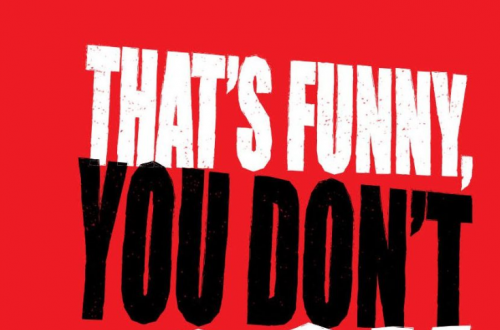‘Cynical Theories – how universities made everything about race, gender, and identity and why this harms everybody.’
By Helen Pluckrose and James Lindsay
Swift publications UK 2020
I’ve divided my reflections on this publication into two parts; the first is necessarily impressionistic, broad brush, and the second, to follow, focuses on Disability Studies, relating to my own experience. I give some brief examples of the ‘harm’ in the title of the book. Hopefully I have not misrepresented the authors.
Impressionistic because despite the authors’ best intentions, the book is dense, covering a wide range of topics, and for this reader, requires much reading and re-reading. I’m acutely aware that I have not digested all of it. But it’s gripping. The authors set out not just to explain and translate what is going on, but to ‘provide a guide to the language and customs that are ..widely promoted under the pleasant sounding moniker ‘social justice’’. They unpack and explore the theories which are driving contemporary activism, covering the ‘evolving branches’ of postmodern theory over the last 50 years.
The word cynical, in the title of the book, is deliberate; the authors assert that many of the ideas informing the theories are pessimistic, rejecting objective truth and modernity. Radical skepticism about modernity is a defining feature. There is a sense of hopelessness and a preoccupation with the superficial. The authors deem these key features ‘reactionary’. (The theories are also often characterised by obscurity of language. *)
The authors suggest that universities , and academia, are sites in which the theories are mainly located, and are significant generators of activism and intolerance. Scholarship and rigorous research are tainted by the cynical theories, open debate is stifled. This has affected a wide range of studies including STEM subjects. And ‘what happens in universities doesn’t stay in the universities’.
The book comprises 10 chapters dealing with interrelated topics such as CRT and Intersectionality, Postcolonial theory, Feminism and Gender studies, and explores what I call the heavy stuff originating in the 1960s – Foucault, Lyotard, Derrida, etc – whilst later chapters consider ways in which the theories have shaped the debate in subjects such as Queer theory and Fat studies.
Of particular interest are two chapters on Social Justice scholarship, thought, and action. Whilst a concern for justice in society is necessary, social class – previously considered an important topic – is rarely considered by the theory. Instead it ‘seeks to apply deconstructive methods and postmodern principles to the task of creating social change’. Theory and activism are based on the assumption that racism and bigotry are everywhere, consequently there is a preoccupation with, and elevation of, victimhood. There is no room for criticism: disagreement is interpreted as a sign of intellectual and moral failure. There is ‘little time for universal principles and individual intellectual diversity’.
Postmodernism is the subject of the first two chapters, though it ‘isn’t just hard to define, it’s also …difficult to summarise’ – it has not been one unitary movement. Overall it ‘raises such radical doubts about the structure of thought and society that it is ultimately a form of cynicism’ – a cynicism about ‘the entire history of human progress’. Everything is deconstructed.
PM’s main themes include –
- the blurring of boundaries
- the power of language
- cultural relativism
- the loss of the individual and the universal
- a belief that society is formed of systems of power and hierarchies, which decide what can be known and how
The blurring of boundaries, for example, is referenced in several chapters . It erases categories and ‘revels in ambiguity’. Ideas about power can produce crude binary opposites, simply reduced to those who have it and those who don’t. This has seeped into social work textbooks. The client is powerless, a victim – especially if s/he is a person of colour – and the social worker represents a powerful, white, oppressive, system. Social workers are encouraged to become suspicious and apprehensive about using their authority, thereby undermining their ability to make judgements and act decisively. But the mindset which casts people into oppressors and victims can get muddled up, with disastrous results – eg the grooming gang scandals.
But whilst Sokal and others who unpicked such ‘fashionable nonsense’ made an impact in the 1990s, it hasn’t dented the enthusiasm of postmodernism’s successors and activists- they have become more confident and assertive. By the 2010s ‘the language’ has become ‘far clearer’ with ‘stronger words, words of conviction’: the obsession with identity, racism, power and privilege is prominent and strident.
The book is a timely, scholarly, work and an epic endeavour. I see it as a significant contribution to the push back against Woke , bad ideas, and the authoritarianism and intolerance of Social Justice activism. The book progresses through the authors’ ‘alternative to the ideology of Social Justice’, warning that the identitarian politics of the extreme left can fuel the same on the extreme right. It ends with their ‘principled oppositions’, setting out their commitment to the importance of proper academic and scientific research, to the necessity of rational debate, reason, and rule of evidence, to Enlightenment humanism, and above all to Liberalism.
——————————————————————————————————————-
* “Obscurity of expression is considered a flaw. Not so, however, in the speech or writing of intellectual gurus. All too often, what readers do is judge profound what they have failed to grasp…. I try to explain this ‘guru’ effect by looking at the psychology of trust and interpretation, at the role of authority and argumentation, and the effects of these dispositions and processes when they operate at a population level where, I argue, a runaway phenomenon of overappreciation may take place”
Dan Sperber: The Guru Effect
Review of Philosophy and Psychology 1(4) 583-592 , 2010
This is a guest post by Muncii92





